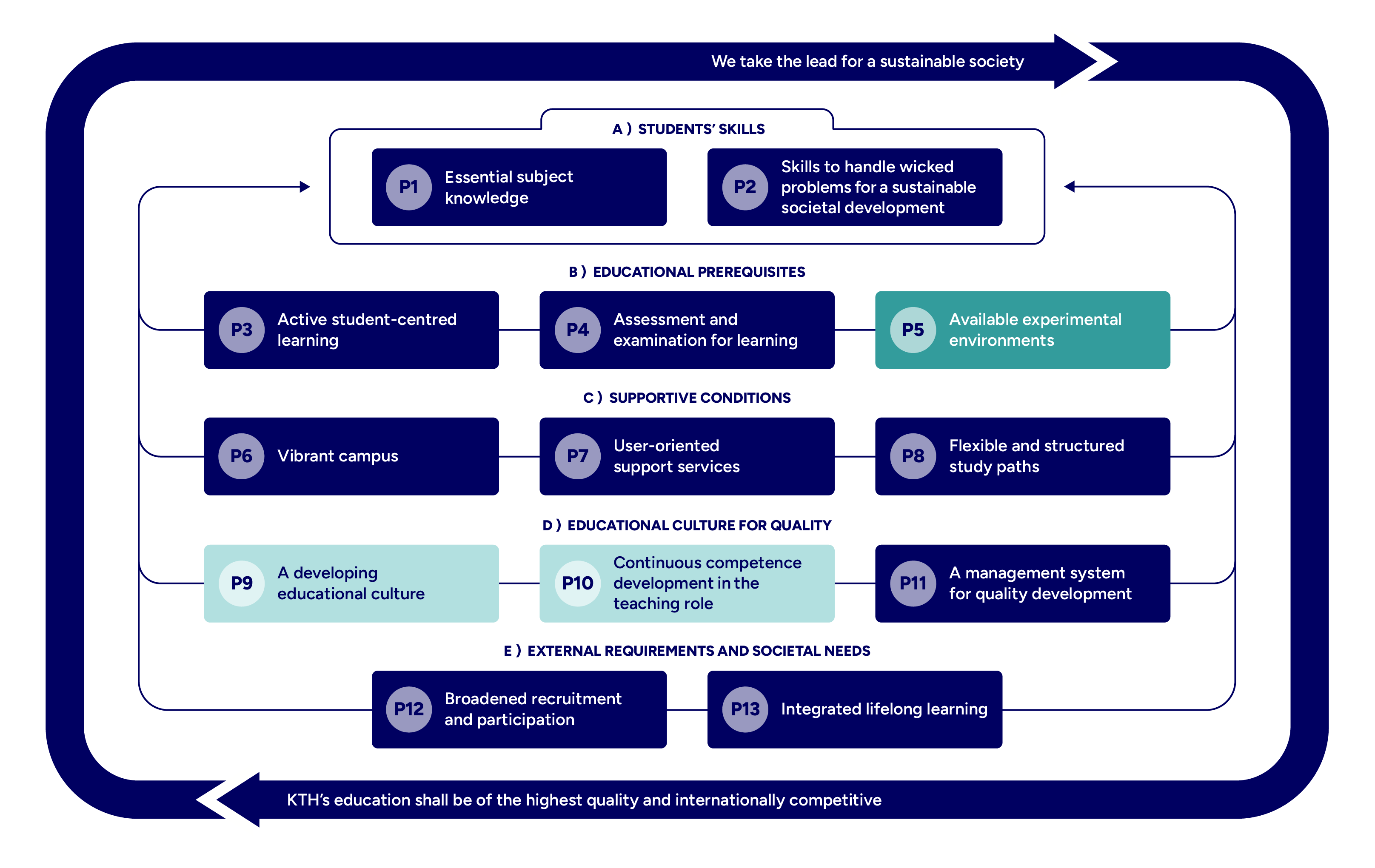Creative teaching in engineering education: incentives, challenges and tools
The project includes a mapping of courses and course elements at KTH that have applied paradigm-breaking, interdisciplinary, interactive and creative pedagogical methods and approaches that enable deep learning within engineering education.
Project context
There is great potential for pedagogical development within engineering education, based on creative pedagogical tools which support students in identifying solutions and asking new questions that are crucial for meeting complex and interdisciplinary societal challenges. There are also challenges for teachers to implement new ways of teaching that breaks the prevailing paradigm.
Purpose (outcome)
The development project is expected to have a positive effect and to create good conditions for pedagogical development and strengthen engineering education through:
- Interactive pedagogy between disciplines in engineering education can strengthen students in their future professional role in working with interdisciplinary teams to address critical societal challenges.
- Good examples of how paradigm-breaking methods create conditions for deep learning pedagogy at KTH.
Project results (output)
The project aims to shed light on both incentives and challenges for teachers in engineering education through a combination of research (survey, workshop and interviews). The output is:
- A compilation from a survey of courses and course elements at KTH that have applied new pedagogical methods and paradigm-breaking approaches that enable interaction between science, artistic methods and technical expertise within engineering education.
- Conclusions from workshops with interdisciplinary dialogues on new pedagogical tools.
- Popular science paper on the exchange of experiences between KTH courses at the ABE school that have applied new working methods in courses and/or developed new courses that integrate scientific artistic methods, artistic dialogue and student influence in the design of course elements.
Time plan
Start date: 2025-09-01
End date: 2026-08-31
Project documentation
If you have a KTH ID, you can read the latest project documents on OneDrive when logged in:
- Poster: The project’s first poster (in Swedish) will be available at the ”Storträffen” meetup on 2025-12-01.
- Project initiation document: Projektdirektiv_FrU25_2504-ABE_KreativaPedagogiskaVerktyg_250604.pdf (Swedish)

